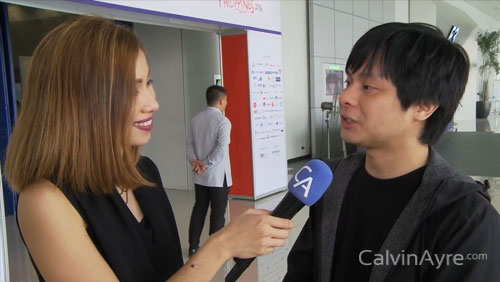In this interview with CalvinAyre.com’s Stephanie Raquel , John Bailon of Satoshi Citadel Industries discusses how financial technology companies can complement bank services, products in the Philippines.
https://www.youtube.com/watch?v=gUVsMMt3M4Q
Based on the World Bank’s Migration and Remittances Factbook 2016, the Philippines remains the third highest recipient of remittances in the world as it is predicted to hit $29.7 billion this year. The Southeast Asian nation trails behind India, considered to be the top recipient of remittances with $72.2 billion, and China with $63.9 billion.
For the past decades, most overseas Filipino workers course their hard earned money abroad to their trusted banking institutions. But as the world moves toward the digital age, majority of Filipinos may find themselves behind being left behind.
Highlighting the challenges facing the goal of boosting access to digital financial services John Bailon of Satoshi Citadel Industries (SCI) lamented that only three to five percent of Filipinos have access to digital payments.
This is probably not surprising as a survey conducted by credit debt watcher Standard & Poor’s (S&P) Ratings Services found that only 25 percent of Filipino adults are financially literate.
Bailon explained they started the company in the Philippines because they saw the need for improving the financial services of the country that had relied solely in bank services and products.
As a company focused mainly on building blockchain-based products, Bailon pointed out that SCI, just like other financial technology companies, will be able to compliment the traditional financial institutions in the country.
“Ten million Filipinos work outside the Philippines and sent money back to their families every month, so we built a way for people to send money, the transaction goes to bitcoin and then we deliver pesos still,” Bailon told CalvinAyre.com. “We are able to lower the rates, we are able to deliver the money faster. Those are just a few things that we have been trying to do.”
But SCI, according to Bailon, is more than just a money transfer company, especially since blockchain technology offers so much opportunity to help different industries, such as gaming industry not only in the Philippines but in other countries.
“So initial we built a platform wherein merchants will be able to accept bitcoin instead of using a credit card which not a lot of people will be able to apply for but still be able to pay digital. As we went a long, we realize the remittance industry is a far better way for us to make a dent,” he said. “Recently, we have just launched a product called Keza, essentially an app that enables you to invest in US stock market or Euro stock index using bitcoin. In a matter of minutes, you are a participant.”
When asked how the company will deal with the trust issues in terms of customer acquisition for blockchain technology, Bailon said that they focus more on the company – particularly the trust and brand equity – rather than the technology.
“Because the technology it’s a part, it’s a huge part but still just a part of the company or the service. So as much as possible, we remove all the complicated parts of it,” Bailon explained. “We don’t really try to change how an OFW sends money to the Philippines. We just remove the parts that are clunky and replace that with the parts that we can provide such as blockchain based-remittances. In order to become successful with this, we should as much as possible not to steer to faraway from existing.”
